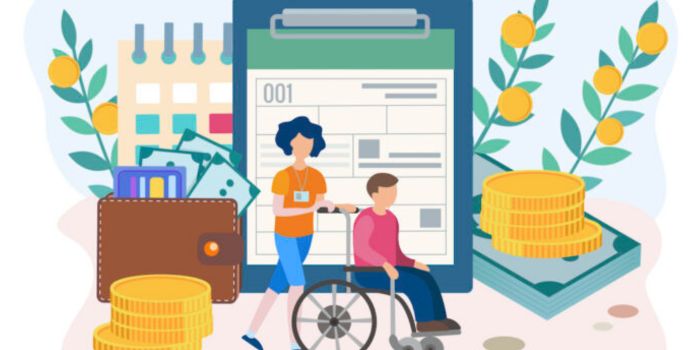To help you make an informed decision we created:
Ten Questions To Consider When Purchasing Disability Insurance
1.) What is the difference between short-term and long-term disability insurance?
Short term disability can cover you from up to 1 day to six weeks and Long term disability can provide benefits for 30 days to as long as age 67
2.) How much of your income might a disability insurance policy protect?
Usually 60% – 80% of your income, however at higher incomes over $150k the percentage usually declines.
3.) Are your disability benefits taxable? Is it offset by any other benefits?
If your benefits come from a group plan through work and you don’t pay the premiums, the benefit will be taxable, but if personally paid with after-tax dollars then it will NOT be taxable.
Additionally, group plans are usually offset by other benefits such as Social Security, Workers comp, etc.
4.) If you have disability benefits at work, can you take them with you if you leave?
It depends on the type of plan your employer offers. Most often the answer is no!
5.) What is the difference between personal disability and Social Security Disability?
Social Security requires you have the necessary work credits. They do NOT pay for partial or short-term disability and the absolute maximum benefit is $3,011 (for 2020). You have to be disabled 6 months before eligible and they deny over 60% of claims. Personal disability provides a benefit based on your actual income and allows for short-term and partial disability.
6.) What happens if I am disabled and can only work part-time?
Depending on the plan you have, there are usually benefits that allow you to work part-time and be eligible for a benefit based on your Loss of income.
7.) What counts as a “disability”?
Any accident or illness that prevents you from doing the material duties of your job with a few minor exclusions..
8.) How long do you need to be out of work before you are eligible for a benefit?
Depending on the plan, a short-term disability could be as low as 8 days before benefits begin, and for long-term disabilities, it could be as little as 30 days but most plans have a 90 day waiting period.
9.) Is there anything disability does not cover?
Acts of war; intentionally self-inflicting; during the commission of a felony; while incarcerated are the most common.
10.) When is the best time to have disability coverage?
During your working years, and the younger you are the less expensive it is. Plus you can buy an option to lock in your Future health- increase the plan without regard for any change in health.
Your ability to earn an income is most likely your greatest asset and the odds of being sick or hurt and not being able to work and earn that income is one of the greatest risks to you and your household.
We hope this article serves as a catalyst to encourage you to review your disability insurance program or start one.
###
Learn More About IFW’s Life Insurance, Disability Insurance, and Long-Term Care Planning Services
What is your most valuable asset? The answer is you and your ability to earn income. This service is a must for anyone that wants to make sure they not only learn how to best protect themselves and their families but also discover meaningful benefits and best practices when it comes to insurance and protection.
- Find out what types of insurance make sense for your unique situation
- Learn how to determine an appropriate amount of coverage
- Pay the least expensive premium, while receiving the best value
- Discover how to use life insurance as a unique financial tool
- Plus, every participant will receive a free IFW Insurance Personal Report, including a review of all their current insurance and recommendations to improve their risk management program.
REGISTER HERE FREE FOR THE NEXT PROTECTING YOUR GREATEST ASSET LIVE WEBINAR
The IFW provides valuable financial education, resources, and services that help people live their best life.
Please remember, be mindful of the messenger that positions certain products or services as “always” bad or “always” perfect. The fact of the matter is there are no “bad products” or “perfect products”. The right product is the one that aligns with your goals and objectives.
The Institute of Financial Wellness believes when it comes to financial decisions; never say “Never” never say “Always”…It Depends.




